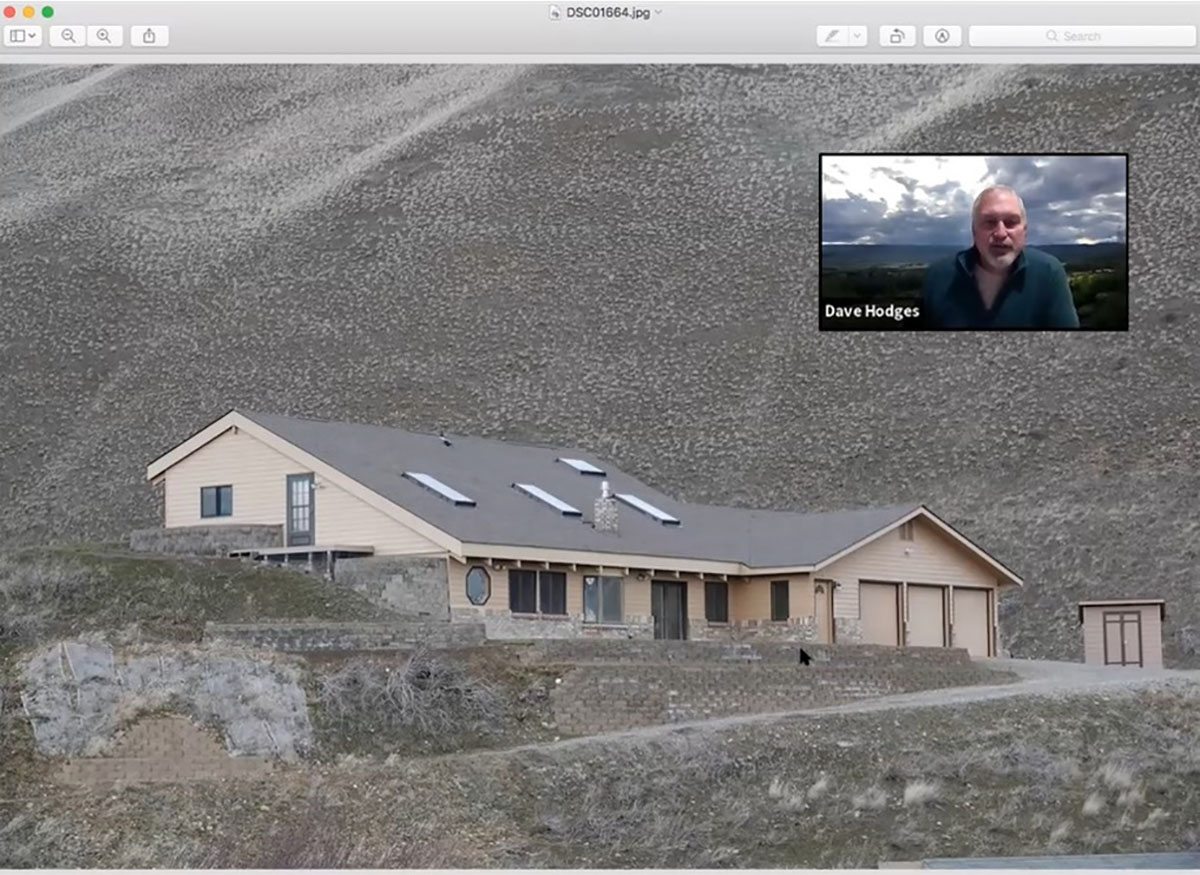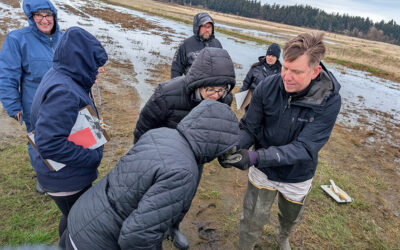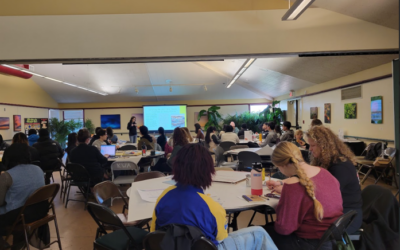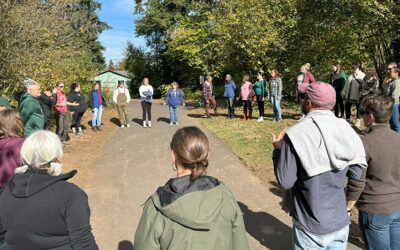During the week of February 8th, 2021, 19 teachers from ten Central and Eastern Washington school districts attended a three-day online workshop, Solutions Oriented Learning Storylines: Renewable Energy-Solar, with Pacific Education Institute’s FieldSTEM Coordinator Megan Rivard and PEI Faculty Michelle Townshend along with local community partners.
To begin the workshop series, Megan acknowledged the land that she resides on. The participants later completed an asynchronous activity to learn more about their local tribal nations and the actionable steps to incorporate tribal history and perspectives in their classrooms. During the first session, participants experienced an outdoor phenomena activity to demonstrate the relationship between the sun, atmosphere, and thermal energy. After their trip outside, participants heard a presentation from Dave Hodges, educator and passive solar homeowner and builder. Hodges described the various considerations in building a passive solar home, and the many struggles with code and regulation which do not exactly favor passive solar design.
The second session introduced participants to the idea of the sun’s energy as abundance; this is a connection used throughout the storylines. Participants then learned about active solar energy capture by using their smartphone and a light meter app to explore ambient light in their respective spaces, and then met in small groups to discuss the use of this tool with their students to explore why placement of solar panels and windows matter. Michael Townshend (Townshend Cellar) and Tyler Dornquast (Avista) spoke to participants about solar energy projects on an individual business and industrial scale, respectively, and participants were able to learn more about grants and programs available to assist in residential and business solar energy project financing.
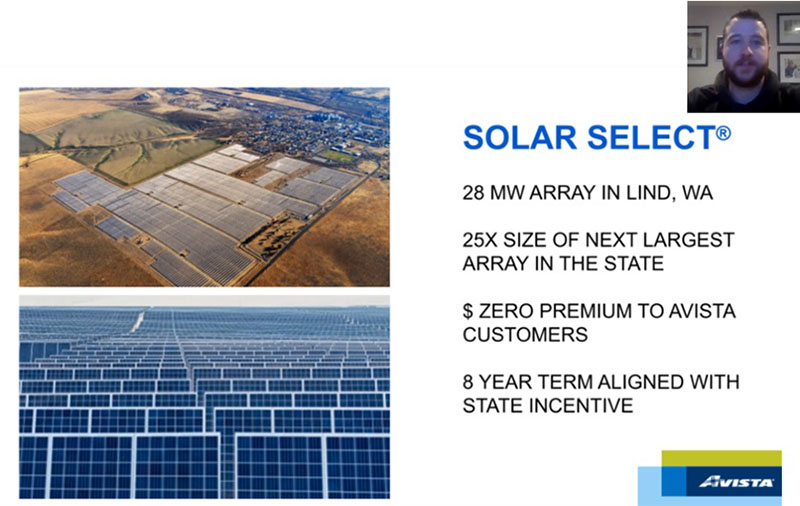
Tyler Dornquast presenting about solar energy projects in Washington.
In the last session, educators played “Goosechase,” an interactive scavenger hunt that can be done from any geographic location. Participants play on teams and earn points by completing facilitator curated solar energy missions around the participants’ own home or school. Participants shared their passive solar home designs and worked together for reflection on the storyline and implementation troubleshooting using Jamboard. PEI will be publishing the Renewable Energy: Solar storylines on the ClimeTime Open Educational Resource portal and on our website in June 2021.
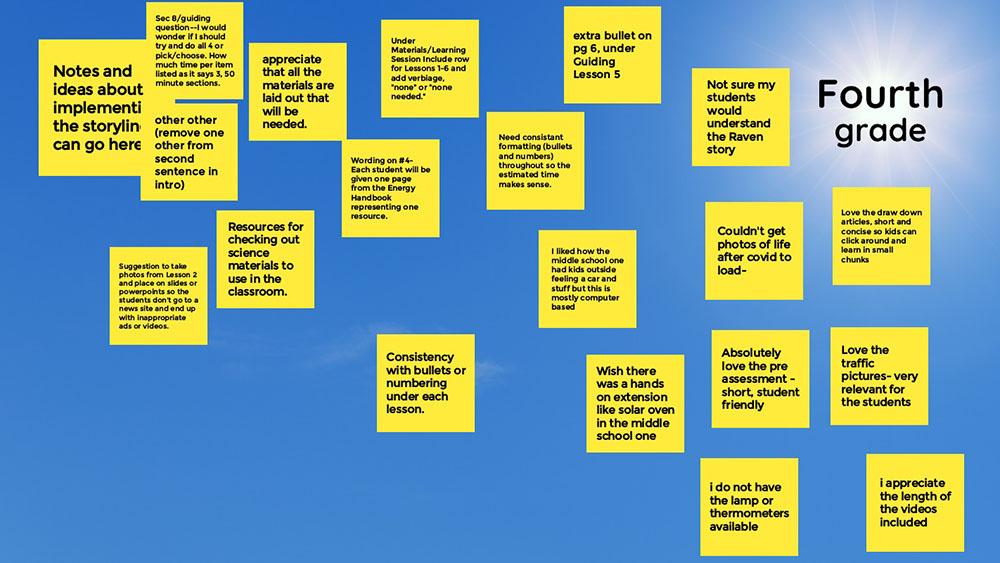
4th grade team planning using Jamboard

